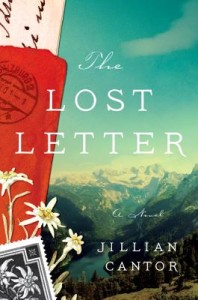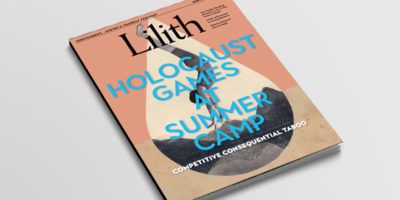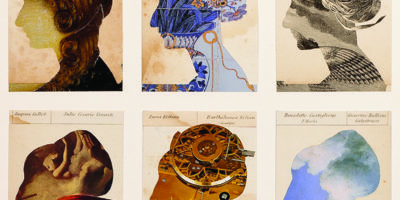An Envelope Sealed, a Mind Shutting Down
 The Lost Letter, a new novel by Jillian Cantor (Riverhead Books, $26) weaves together two stories of love and loss, decades apart but indelibly connected by a mysterious postage stamp.
The Lost Letter, a new novel by Jillian Cantor (Riverhead Books, $26) weaves together two stories of love and loss, decades apart but indelibly connected by a mysterious postage stamp.
When Cantor’s protagonist, Katie Nelson, discovers a sealed love letter from WWII in her father’s old stamp collection, she sets off on an all-consuming search for the letter’s intended recipient.
After her father’s worsening Alzheimer’s forces Katie to move him into an expensive care facility, she is left to deal with his massive stamp collection. Recently divorced and listless, she fixates on finding something of value in the old boxes; a “gem” as her father used to call it. When an appraiser finds the mysterious love letter, its value is unclear, but it becomes Katie’s last hope of connecting to her father’s failing mind.
Katie’s pursuit of the truth, set in the 1980s, is beautifully mirrored in alternating chapters by Cantor’s second protagonist, Kristoff, an apprentice stamp engraver in Austria during WWII. When his master, a famous Jewish engraver and father-figure, disappears during Kristallnacht, Kristoff is forced to engrave stamps for the Nazis. Working alongside him is the master’s fiercely patriotic daughter, Elena, who’s love encompasses Kristoff’s every spare thought.
As each new clue moves Katie across the world and backward in time, Kristoff’s moral compass and role in the Austrian resistance solidifies. These dual narratives, taken from vastly different perspectives, fit seamlessly together through Cantor’s clever use of matched tone and pacing.
The Lost Letter is historical romance fiction at its core; a story of love and revival. Kristoff matures and falls in love with Elena’s “angry green eyes”; a painfully nostalgic first love with all the hallmarks of the young and naive. Meanwhile, in the 1980s, Katie allows herself to move past her divorce and build a new life. The Berlin Wall, which comes down slowly throughout the novel, functions as a symbol of painful separation, and the ultimate healing power of second chances.
Despite the heavy subject matter, the novel’s blend of romance, adventure, and family secrets offers familiar themes. The Lost Letter’s most powerful passages are in Cantor’s depiction of Katie’s father, whose losing battle with Alzheimer’s plays out in vivid detail. Drawing on her own grandmother’s experience with the disease, Cantor creates a heartbreakingly realistic portrait of decline. Her father’s unpredictable memories and moods act as the ultimate antagonist, more menacing than the Nazis in Kristoff’s story.
Chloe Rose Stuart-Ulin is a journalist and screenwriter in Montréal. Her work has appeared in Ha’aretz, Maclean’s, and The Syrup Trap.



